Changing views on conflict
This entry recommends resources to find out how New Zealand's involvement and views of conflict have changed over time, and how wars are commemorated. It also looks at New Zealand's work with the United Nations and current ideas of national identity.
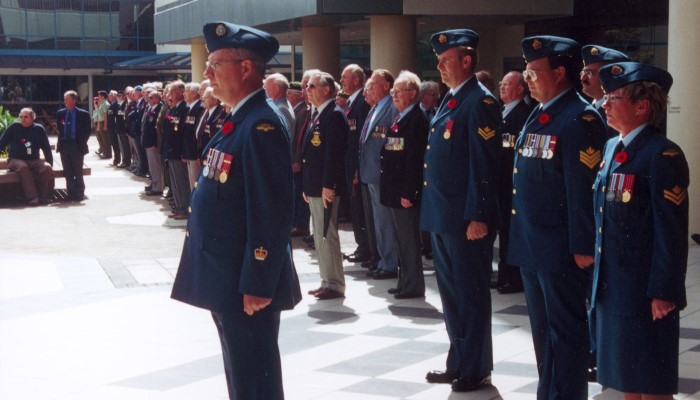
Image: War veterans at the dedication ceremony for the Takapuna War memorial, The Strand, Takapuna by Fiona Henderson. Collection: Auckland Libraries Heritage Collections T7394.
Keywords
Here is a list of keywords on the international wars that New Zealand was involved in, how these conflicts have been remembered and honoured, including other war-related words that will help explore this topic. Use this list of keywords when searching the collections in this entry.
South African War (1899-1902): Also known as the Boer War. Fought between the British Empire and the Boer South African Republic. This was New Zealand's first conflict overseas.
World War I (1914-1818): Also known as the Great War and First World War. Fought between the Allies and the Central Powers.
World War II (1939-1945): A war fought between the Allies and Axis powers.
The Malayan Emergency (1948-60): New Zealand army, Airforce and Navy forces were sent to help the ruling British colonial rulers in Malaya in their fight against the Malayan Communist Party.
Korean War (1950-1953): New Zealand sent military forces, in support of the United Nations, to help fight against the communist North Korea's invasion of South Korea.
Vietnam War (1963-1975): New Zealand soldiers were sent to South Vietnam to support the United States against the communist Democratic Republic of Vietnam (North Vietnam).
East Timor (1999-2000): New Zealand's peacekeeping force was part of the International Force East Timor (INTERFET) to restore peace and help with humanitarian aid in East Timor.
RSA: The Returned Service Association was formed in 1916. It supports war veterans and their families in New Zealand.
ANZAC Day: Commemorated each year on 25 April, the day Australian and New Zealand soldiers landed on Gallipoli during World War I.
Jayforce: New Zealand soldiers who were part of the British Commonwealth Occupation Force stationed in Japan after WW2.
New Zealand Expeditionary Force (NZEF): The official name of the forces deployed from New Zealand to fight alongside the British military force during World War I and World War II.
New Zealand Defence Force: The armed forces of New Zealand include the Army, Navy and Air Force.
New Zealand (Māori) Pioneer Battalion: Māori and Pacific Island soldiers that served in the First World War.
New Zealand Māori Battalion: In World War II, the 28th Battalion was known as the Māori Battalion.
Nancy Wake: Born in Wellington, New Zealand, Nancy became a spy supporting the French Resistance in World War II. She was known as the White Mouse.
Peacekeeping: New Zealand's involvement in peacekeeping activities in countries like Namibia, East Timor, Bougainville, Solomon Islands, Afghanistan and Tonga. These peacekeeping missions have often been led by the United Nations (UN).
Women's Auxiliary Army Corps (WAAC): Formed in 1942. Allowed women to serve overseas in non-combat roles during WW2.
Conscientious Objectors (COs): Men who refused to enrol in the armed forces during World War I.
Prisoner of war (POW): A person who is held captive by the enemy in a war.
Tips: Before searching it can be useful to come up with a list of words to use. These are sometimes called keywords or search words. They can be the name of a person, place, or event you are researching. You can leave out small words like ‘the’ and ‘of’ and just choose the main ones, eg 'Anzac Day'. We can always change our keywords or add more if we need to.
Tips: Also keep in mind that there are different names or spellings for words. Or they could have changed over time.
Auckland resources
Here are some collections from Auckland Libraries, and other Auckland-based museums and heritage websites. They will help you find books and information on New Zealand's involvement in international conflicts and how ideas of participation and remembrance of wars have changed over time.
Auckland Libraries Catalogue
This catalogue from Auckland Libraries will help find books on Aotearoa New Zealand and Auckland's histories.
Search the catalogue using keywords like 'Vietnam War' or 'Boer War' from the list above.
You can get fewer results by using the filters under Refine by.
Go down the page to Edition information to check if the book can be borrowed or if it's for In library use only.
Look further down the page to Related Resources to find other titles related to this search.
If you have an Auckland Libraries library card you can request the item to be sent to you at your local library.
Tips: If the status of the book is 'In library use only', it means the book can only be used in the library and can't be taken home. In this case you will need to fill out a form or speak to a librarian about reading the book in the library.
Tips: You will find lots of books that have been written over 50 years ago. While they are good sources of information, we need to remember the context and time when they were written.
Heritage et AL
The Heritage et AL blog is written by librarians and is a useful way to find information about Auckland Libraries heritage collections.
Look on the left of the page to select Labels.
Look under World War 1 to read the blogs The New Zealand Māori Contingent and the New Zealand (Māori) Pioneer Battalion and Thinking about WW1 centenary commemorations.
There is also a link to World War II. Read Government gardens in South Auckland about the work of the Land Girls during WW2.
Or, you could search the blog using the keywords 'prisoner of war' to read New Zealand Prisoners of War in Italy during the Second World War.
Tips: Blogs can be good for looking at how things have continued or changed over time. Remember, stories can be told in different ways so it’s helpful to look at multiple information sources to find different perspectives.
Kura — Photographs
Browse photographs, illustrations and works of art from the 1800s to the present day.
Search using the keywords 'war veterans'.
This will bring up a page of images honouring war veterans eg Korean War memorial, Parnell, 2014.
Next, try the keywords 'Women’s Auxiliary Army Corps' to find Dominion-wide recruiting campaign for women's services: appeal for army, navy and air volunteers.
Or look under Collection Name for the Bruce Ringer collection.
This has a range of images of war memorials and rolls of honour in various places in Auckland.
Auckland Libraries - YouTube
The Auckland Libraries YouTube channel has many videos about Auckland’s heritage, recordings of library events, conversations with authors, talks, stories, activities, music and more. Some of the talks are delivered by historians on their specialist subjects.
Look down the page to find the Heritage Talks playlist or search within the channel for 'war'.
Browse through the titles to find an item that interests you.
For example, The South African War 1899-1902 talks about New Zealand's involvement in the Boer War.
Blood Brothers: The ANZAC Genesis talks about the background of the ANZAC alliance.
Explore the other collections or use the search feature under the name Auckland Libraries to enter a keyword from the list above.
Tips: You will find a huge selection of videos on YouTube. We recommend you view videos from reliable sources like National Geographic, History Channel, BBC etc. These are official channels from organisations.
Tāmaki Paenga Hira | Auckland War Memorial Museum
This is one of New Zealand's significant heritage libraries. Besides pictorial and art collections, the museum holds Māori and Pacific collections, and natural, social and history. This is also a great place to visit and check out the exhibitions and galleries on various topics about Aotearoa New Zealand’s histories.
Go to the tab called Discover then select Stories to find Cenotaph stories.
Use the Show more icon to view a range of topics such as the Vietnam War, the South African War, Nursing Corps, Commemoration, Jayforce, Peacekeeping, Purple Poppy Day and more.
If you look under Army, Navy and Air Force you will find stories about women in the defence forces such as Serious business: Women in the Army.
You can also use the search feature to enter the search words 'conscientious objectors'.
Then select the Stories tab to read Conscientious Objectors in World War One.
This story covers men who refused to sign up to join the war and Te Puea Herangi's campaign against Māori conscription in WW1.
Tips: Websites that have .com or .co in the address can have good information, but you need to assess how reliable it is. Check the About us link on the website, if you can find one. That can tell you what the company’s mission and values are.
Auckland War Memorial Museum – YouTube
This is the official YouTube channel of the Auckland War Memorial Museum. There are lots of videos under different section headings.
Go to the section on War Memorial.
Look for the video History Uncovered! – Why We Don’t Remember Passchendaele.
This video ensures that New Zealand's sacrifice on the Western Front is not forgotten.
New Zealand Maritime Museum | Hui Te Ananui a Tangaroa
The museum has one of New Zealand’s most important collections, archives and stories of its people and the sea. This includes the Pacific migration stories, New Zealand’s maritime history, and modern technology and design.
Use the tab Collections to select Stories and Blogs.
Go down the page to Maritime Personalities.
Read Eight-Ten in the Danger Zone: The Story of Captain Davey.
This story recognises the achievements of Captain Davey during World War One.
Tips: Some websites have .au, .nz, .uk or other codes in their url. This can tell you which country this website comes from eg .au is from Australia or .nz is from New Zealand. You can check the About Us link on the website for more information.
Remuera Heritage
The Remuera Heritage was established in 2007 to recognise, protect, and preserve Remuera's natural and cultural heritage.
The tab called Exhibitions has an online exhibition of Remuera Women Who Served in World War One.
Also, try Stories, then select Category to view a drop-down menu.
The pages pay homage to men and women from the local area who fought in the world wars.
Tips: Local heritage sites are a great way of learning about the local history and culture of a particular area as they have stories that connect the past with the present.
General New Zealand resources
The websites below belong to government agencies, national museums, archives, libraries, and other reliable sources. They will help you find information on the international conflicts that Aotearoa New Zealand has been part of and how this involvement has changed over time.
NZ History
NZ History is a great website for information about Aotearoa New Zealand. If we go all the way down the page we can see that the website belongs to the Ministry for Culture & Heritage, so the information is well-researched and reliable.
The section on New Zealand at War lists the number of wars that Aotearoa has been part of.
This page also links to memorials, commemorations, Māori War Effort Organisation, and Prisoners of War.
Explore Memorials, mascots and memorabilia to read about New Zealand and the Victoria Cross, and memorials to Unknown New Zealand Warriors.
Also try the section on Culture and Society to find the section on Memorials.
Choose Auckland memorials to find rolls of honour and memorials for wars fought within New Zealand (New Zealand Wars) and overseas.
Te Ara: The Encyclopedia of New Zealand
Te Ara is an excellent starting point for all questions about Aotearoa New Zealand. This website also belongs to the Ministry for Culture & Heritage, so the information is well-researched and reliable.
Go to Topics and choose War and peace to explore the stories on the First World War, Second World War, New Zealand Wars, Military Medals, Armed Forces and more.
For example, the story called Asian conflicts has stories on the Korean War and Kayforce.
Read Ngā pakanga ki tāwāhi – Māori and overseas wars to read about Māori overseas service after 1945.
The story Conscription, Conscientious objection and pacifism explains the many reasons why people objected to fighting in wars.
Tips: We like sites like this because they’re reliable. You can tell because of their web address – they have either .govt or .ac, meaning they are from government or educational organisations. They’re also New Zealand sites, so relevant for us.
VietnamWar.govt.nz
This website is full of the history and memories of New Zealand and the Vietnam War. It was part of the Vietnam War Oral History Project by the Ministry for Culture & Heritage.
Go to the tab NZ's Vietnam War, then read The war back home about the protests against the war.
Go to Homecoming and After the War to read about the poor welcome the war veterans received after the war and the Crown's apology.
The tab Resources has links to the Roll of Honour and Honours and awards.
WW100
This website by the government of New Zealand has memories, events, projects and activities that marked the centenary of the First World War from 2014-2019.
Go to NZ at War, then use the contents on the left of the page to read Then & Now, Viewpoints and Monumental.
Find the stories:
"Why do we commemorate?" — The peacemakers — an article that asks people to think about peace at centenary commemorations.
Monumental — understanding New Zealand's First World War Memorials — resources to help discover the history and importance of the memorials in Aotearoa New Zealand.
New Zealand at the 1919 Paris Peace Conference — about New Zealand's role in the post-war Paris Peace Conference where the Treaty of Versailles was signed.
28th Māori Battalion
This official site of the 28th Māori Battalion is dedicated to Māori and Pacific men who served in the First World War.
Explore the Media library to view photos, videos and audio of Māori in World War One.
The Story of the 28th tab recognises the contribution of the battalion in the battles at Crete, Italy and North Africa.
Battalion roll has the records of over 6300 Māori and Pacific Island men who served in the First and Second World Wars.
Tips: Websites that have .org or .net in the address can have good information, but you need to assess how reliable it is. Check the About us link on the website, if you can find one. That can tell you what the organisation’s mission and values are.
Te Hau Kīnga | The Māori Home Front
This project looks at the Māori experience at home during and after World War Two. It is sponsored by the University of Otago and the Marsden Fund.
The tab called Stories has lots to explore.
Read Māori women and munitions factories in World War Two and The Ngārimu V.C. Celebration, 1943.
Tips: Some websites have .au, .nz, .uk or other codes in their url. This can tell you which country this website comes from eg .au is from Australia or .nz is from New Zealand. You can check the About Us link on the website for more information.
Museum of New Zealand | Te Papa Tongarewa
New Zealand's national museum located in Wellington has an online collection of images and articles on various topics such as dinosaurs, art, zoology, history, Māori and Pacific cultures and war.
Discover the Collections from the top of the page has a drop-down menu called Read, watch, play.
Look down the page for Anzacs of Aotearoa New Zealand.
This collection includes many useful collections and blogs like
The Significance of the Anzac poppy, The Māori Battalion — Māori soldiers who served in Gallipoli, and Were there Pacific Islanders at Gallipoli in 1915?
National Army Museum | Te Mata Toa
This website showcases New Zealand's military history and its part in major conflicts around the world.
Go to Explore from the top of the page, then Voices of the Past.
Then choose a story to read eg about the bravery of 16/757 Private Tamiti Patu MM.
Navy Museum
Located at Torpedo Bay, Devonport in Auckland, the museum holds memories of the Royal New Zealand Navy history (RNZN).
Try the tab called Explore to view By Collections or Themes.
Under Themes, you will find lots of links to World War One and World War Two.
Look under Post War — 1970 to find the role of New Zealand's navy in the Korean War, Malayan Emergency, Indonesia and Peacekeeping Operations in Pakistan.
Air Force Museum of New Zealand
This museum located in Wigram, Christchurch is the national museum for the Royal New Zealand Air Force (RNZAF) and New Zealand military aviation.
The section called Blog has lots of war stories and experiences.
Find out about the work of the RNZAF in Singapore in The Hush Hush Boys: An Untold New Zealand Story of the Defence of Singapore.
Or look at1941-1942, Occupying Japan: the RNZAF and J-Force 1946-1948 about their work in Japan.
RNZAF Stories: Mogadishu Memories is about peacekeeping in Somalia.
Tips: Museums preserve and exhibit important cultural, artistic, historical or scientific artefacts. Some store personal collections. A lot of them have online collections and articles based on these collections. They are great places to visit.
Ngā Taonga Sound & Vision
Funded by the Ministry for Culture and Heritage, Ngā Taonga Sound & Vision is New Zealand’s audio-visual archive. Their collection includes film and television, radio and sound recordings, props, posters and more from over 120 years of New Zealand’s history.
Try the keywords 'Detention Camps', 'conscientious objectors' and 'Featherston camp'.
Select results to listen to:
Then go to Explore stories to find Stories.
Look under Film, Television, Sound and New Zealand History to find collections.
Read and watch the films Repatriating memory and the Korean War about the Kayforce in Korea, and The Pacific Prepares for War about the contribution of the Pacific Island nations to the war efforts.
NZ On Screen
NZ On Screen is a collection of television, film, music videos and web series from the past to today. It is managed by the Digital Media Trust and funded by New Zealand On Air.
Use the tab Explore to find the War category.
Watch Soldiers Without Guns. The film is about the NZ Defence Force's use of women and, Māori culture and music to help restore peace in Bougainville.
Then look through Collections to find The World War II Collection.
Watch Sedition about the imprisonment of anti-war protesters and pacifists (people who want peaceful solutions).
Or, try the search words 'Vietnam War protests' to watch The Shadow of Vietnam.
Ministry of Defence | Manatū Kaupapa Waonga
The Ministry of Defence is the Government's main advisor on defence matters.
Look down the page for What we do to read about New Zealand's international support for global stability.
There is a section called Diplomacy and Deployments.
Each section explains the role of the New Zealand Defence Force (NZDF) in international engagements and their placement overseas on peace support operations and training missions.
Look under Assessing the Defence System for Military Women to read about the role of women in the NZDF.
New Zealand Foreign Affairs & Trade | Manatū Aorere (MFAT)
MFAT is a New Zealand government department that offers advice and policies on matters of trade and foreign affairs.
Look under Peace, rights and security to find International security.
Go to Peace support operations to find out how MFAT along with the NZ Defence Force and Police contributes to peacekeeping efforts.
You can also enter 'Solomon Islands' to find About Solomon Islands.
This article mentions the Regional Assistance Mission to the Solomon Islands (RAMSI) in 2003 when New Zealanders were sent to help bring peace to the island nation.
Tips: The Ministry of Defence and the New Zealand Foreign Affairs & Trade are two of the best places to find out how Aotearoa New Zealand's plans for dealing with defence issues and the aim of its peacekeeping and training missions.
Books
You can also visit your local public library for books on Auckland and Aotearoa New Zealand histories. Listed below are a few titles to help you with your search for books on this topic:
Hobsonville: portrait of a seaplane station by Bee Dawson.
My Gallipoli by Ruth Stark.
Ake ake kia kaha e! = forever brave! :B Company 28 (Māori) Battalion 1939-194 by Wira Gardiner.
No front line: inside stories of New Zealand's Vietnam war by Claire Hall.
SCIS no: 5496685
More about Auckland
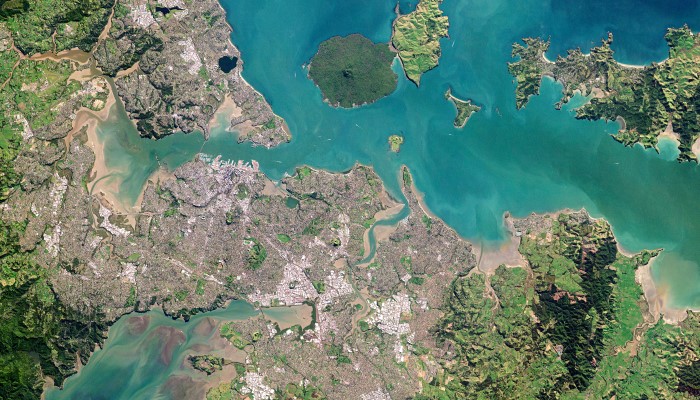
Local iwi
There are many iwi with ancestral relationships to Tāmaki Makaurau. This page lists iwi and websites which have information about their histories.
Learn about local iwi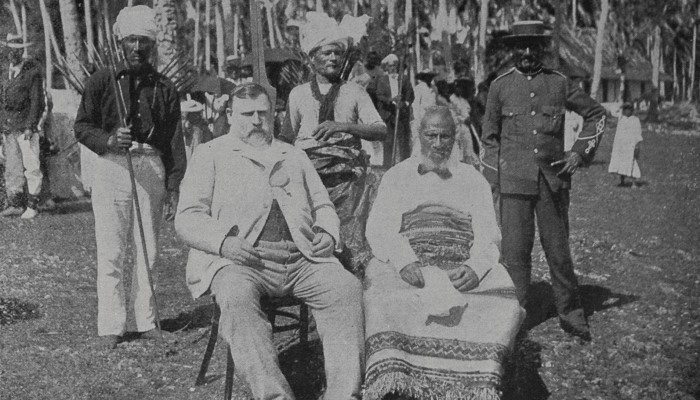
Colonial power in the Pacific
This entry has collections and websites to help explore the history of New Zealand's presence and colonial power in the Pacific. It has examples of the rise of independent Pacific nations and how they sustained their culture and presence in the Pacific.
Learn about colonial power in the Pacific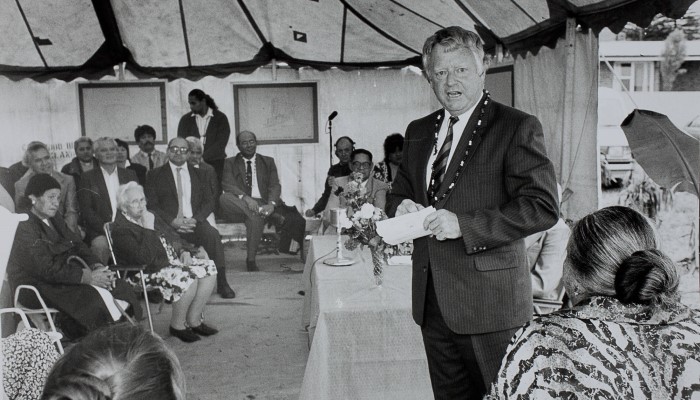
Decolonising the Pacific
This entry will help you find the best websites and collections to explore the decolonisation of the Pacific, including Aotearoa New Zealand's continued interests in the region.
Learn about decolonising the Pacific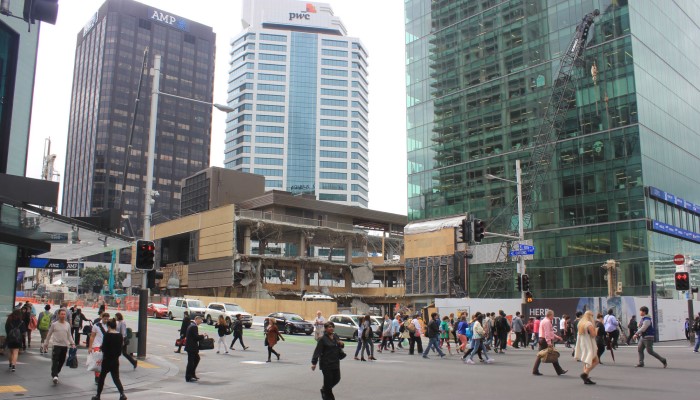
Economic independence and vulnerability
This entry will help you find information about the history behind Auckland's economic progress and independence, and the factors that impacted it.
Learn about economic independence and vulnerability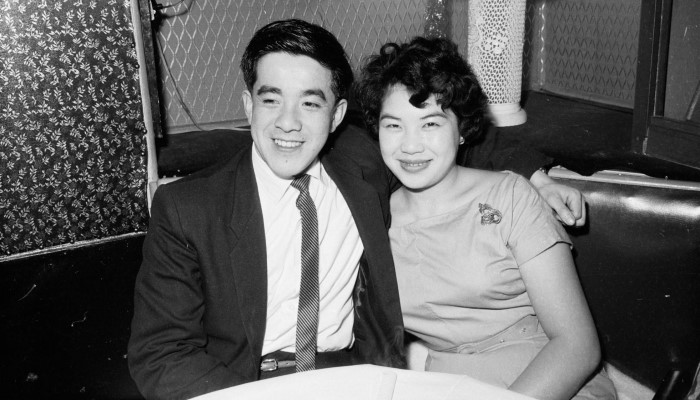
Finding a place in Aotearoa New Zealand
Since the 1700s, new people have immigrated to Aotearoa. Some came in search of a better way of life or because their country was no longer safe. Newcomers could experience racism and discrimination. They also helped shape New Zealand as a country.
Learn about finding a place in Aotearoa New Zealand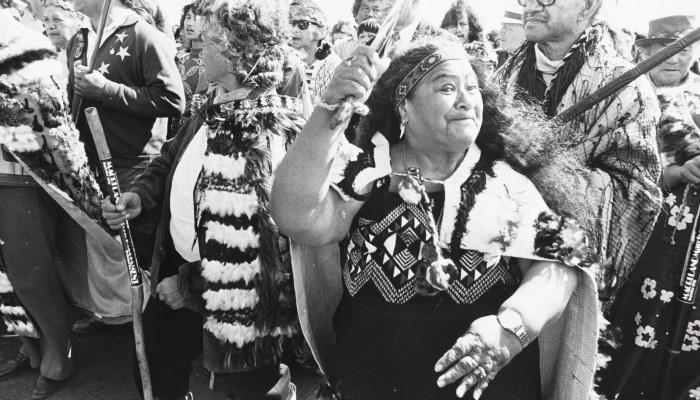
Mana in Māori society
This entry has websites to help you understand the different meanings of mana and its importance in political, social and traditional relationships in Māori society.
Learn about mana in Māori society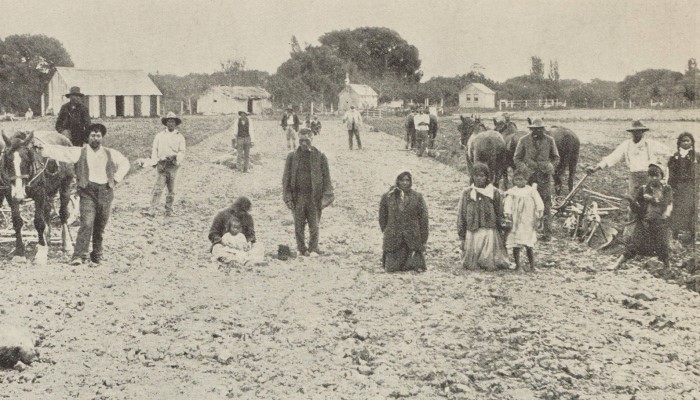
Māori economy: opportunities and challenges
This entry will help you find the best websites and databases that explore the history and development of the Māori economy including the challenges Māori faced from the New Zealand Wars, land sales and decisions made by the Native Land Court.
Learn about māori economy: opportunities and challenges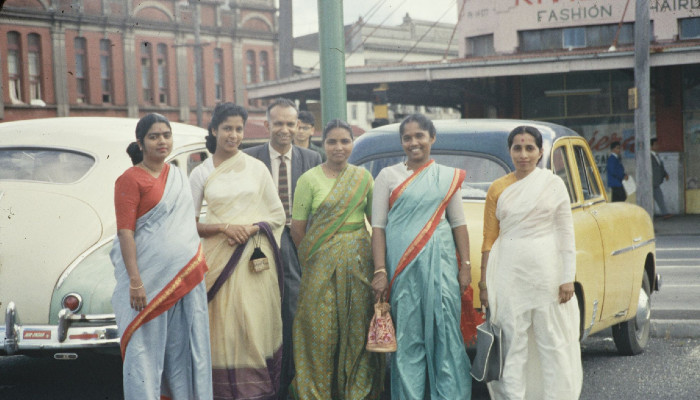
Peopling the colony: inclusion and exclusion
This entry recommends places to find information about the history of immigration to Tāmaki Makaurau and New Zealand. This includes immigration laws and changes, the role of Māori in immigration, and the government's attempt to set right past injustices.
Learn about peopling the colony: inclusion and exclusion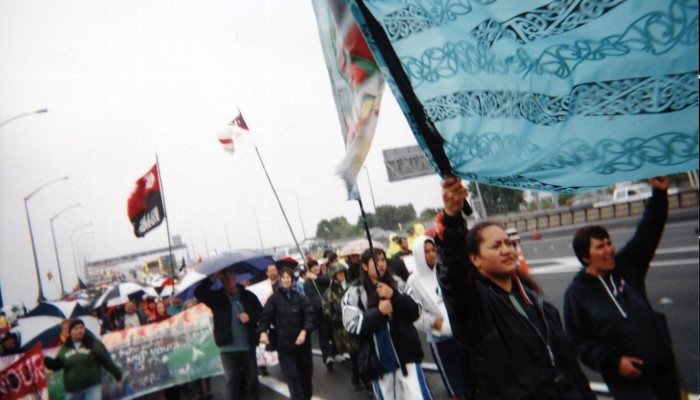
Sovereignty vs rangatiratanga: wars, laws and policies
This entry recommends websites where you can find information about the impacts of land laws on Māori, the New Zealand Wars, and attempts by Māori to find justice and build a relationship with the Crown.
Learn about sovereignty vs rangatiratanga: wars, laws and policies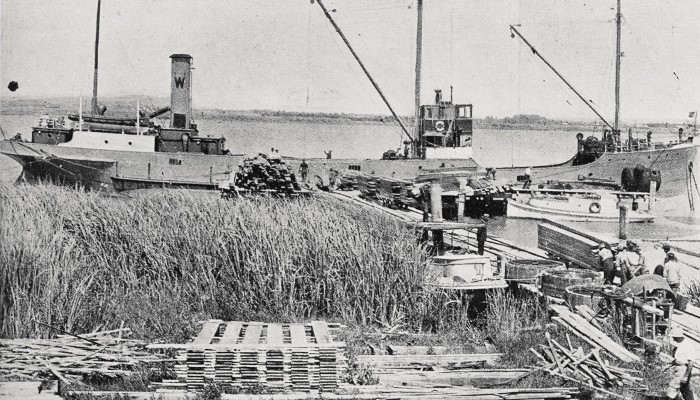
Technology and economic development
This entry will help you understand how advances in technology and land acquisition developed Auckland's economy but greatly impacted Māori and their economy.
Learn about technology and economic development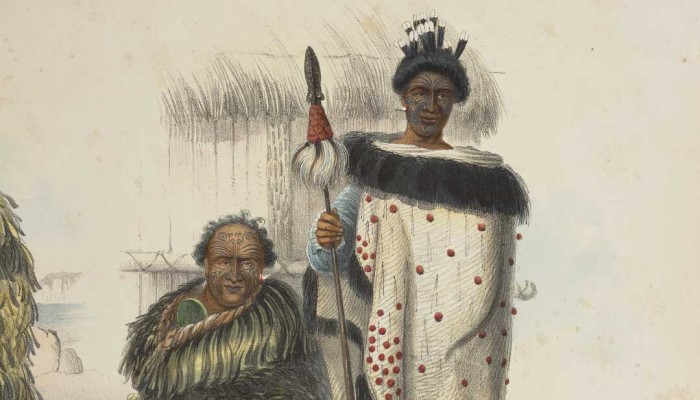
Te Tiriti o Waitangi
This entry recommends websites and collections to find information about He Whakaputanga o te Rangatiratanga o Nu Tireni | The Declaration of Independence and the Treaty of Waitangi | Te Tiriti o Waitangi, their significance, and the signatories.
Learn about te Tiriti o Waitangi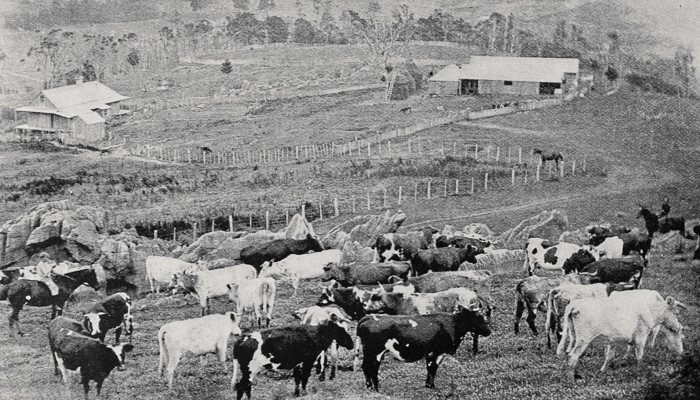
Transforming environments
This entry explores changes made by settlers to Aotearoa's natural environment, their naming of places and features, and efforts to conserve and restore its natural beauty.
Learn about transforming environments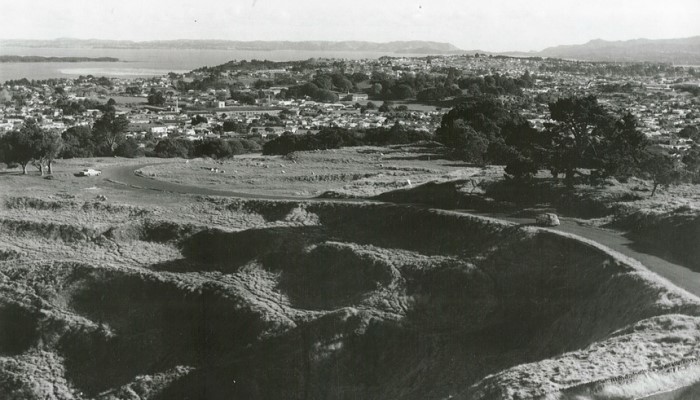
Transforming te taiao
This entry will help you find information on the changes made to the environment by pre-European Māori, and their care and connections to te taiao (the natural world).
Learn about transforming te taiao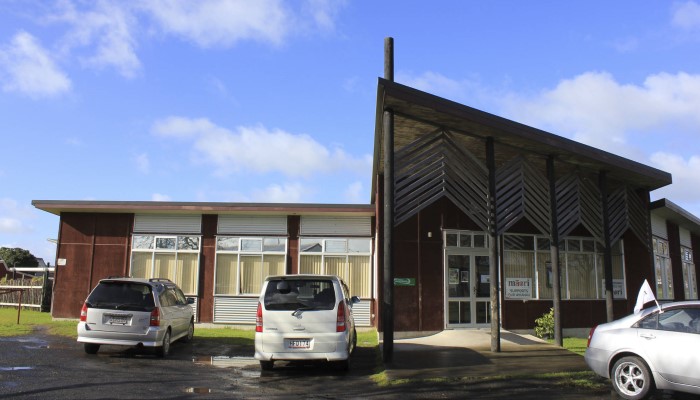
Urbanisation and being Māori
This entry will help you find information about Māori migration to cities, their challenges, and what this meant for their identity as Māori. You will also find information about some protests Māori were involved in to challenge political and social ideas.
Learn about urbanisation and being Māori
